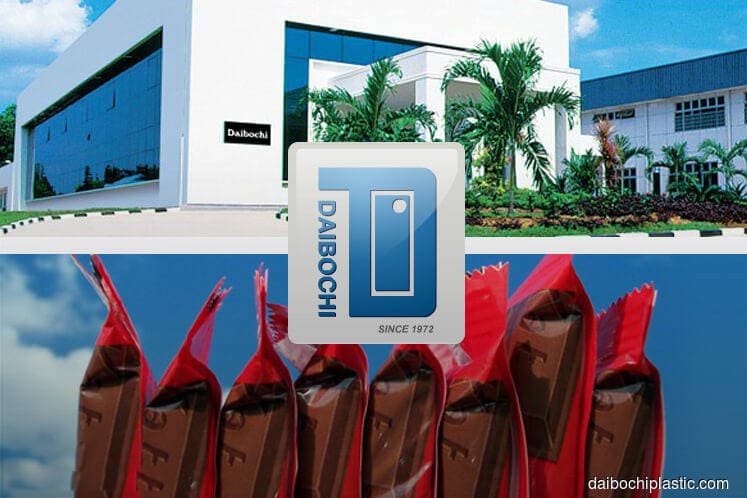
This article first appeared in The Edge Financial Daily on July 2, 2018
KUALA LUMPUR: End-to-end flexible packaging solutions provider Daibochi Plastic and Packaging Industry Bhd is confident of performing better in its financial year 2018 (FY18), which will recognise a full year’s contribution from its new Myanmar plant, while the group maximises the operation’s capacity.
“In the past five years, we have recorded high single-digit growth in financial performances, which are consistent with the steady pace of our customers in the food and beverage and fast-moving consumer goods sectors.
“We are confident of achieving higher revenue and profit in FY2018, based on improving performance of our Malaysian and Myanmar plants, in addition to recognising full-year contribution from the Myanmar plant in FY18,” its managing director Thomas Lim Soo Koon told The Edge Financial daily via email.
The Myanmar plant, under its unit Daibochi Packaging (Myanmar) Co Ltd, commenced operations in July 1 last year. Already the plant has lifted the group’s recent earnings after it started exporting following the approval it secured that year from the Myanmar Investment Commission. It exports to cost-sensitive customers based in Malaysia, said Lim.
The Myanmar operations helped drive Daibochi’s net profit for the financial year ended Dec 31, 2017 (FY17) up 6% to RM25.96 million from RM24.52 million, while revenue rose 5% to RM388.65 million from RM371.16 million.
In the first quarter ended March 31, 2018 (1QFY18), the group’s net profit grew 12% to RM6.48 million from RM5.77 million a year ago, as revenue rose 11% to RM104.74 million from RM94.12 million, thanks again to the Myanmar Daibochi.
While the plant only contributed 3% of the group’s revenue in FY17, Lim said its contribution is expected to rise significantly in FY18.
“As at 1QFY18, the plant contributed close to 8% (around RM8 million) of group revenue,” said Lim.
To boost output, the group has allocated RM14 million as capital expenditure in FY18, mainly to acquire new machinery to enhance its capacity and capabilities in both its Malaysia and Myanmar operations. This includes investing in a printing machine as well as a high-speed slitting machine, said Lim.
“We expect the Myanmar plant to continue on its strong growth trajectory, and reach our annual revenue target of RM100 million by end FY2019,” he said.
The group is focused on growing its Myanmar plant into a significant flexible packaging player in Southeast Asia (SE Asia), said Lim.
“This includes eventually entering into the qualification process with multinational corporations (MNCs) to serve their expanding packaging requirements in SE Asia,” he said.
Shortly after commencing operations, the Myanmar plant obtained key certifications with regard to safety and quality management. “These [certifications] are a step forward in gaining the confidence of MNCs and crucial to the qualification process,” Lim said, referring to the selection as a potential supplier.
As for its Malaysian plant, which contributes the majority of the group’s revenue, Lim said the company will continue to focus on growing its export markets.
Exports made up 53% of the Malaysia plant’s sales in FY17. Its markets include countries like Thailand, Indonesia, the Philippines, the Australia and New Zealand.
Lim also thinks Daibochi may benefit from the temporary tax holiday that arose from the zero-rating of the goods and services tax, pending the reintroduction of the sales and services tax in September.
“This may lead to stronger performance in the short term if we are required to increase deliveries,” he said, referring to consumer spending that may rise, which may lead its customers to restock earlier.
As to whether the new SST would impact the company’s costs, Lim said: “When the SST was in force previously, manufacturers were able to get exemptions for raw materials through a CJ5 facility. We did not face any problems in getting an exemption in the past.”
MIDF analyst Ng Bei Shan said Daibochi’s year-on-year growth will be supported by more orders, as well as growth from its Myanmar plant.
While higher raw material prices had impacted Daibochi’s margins in 1QFY18 on a quarter-on-quarter basis, she said this is expected to improve as Daibochi adjusts prices for its contracts.
“We would expect for margins to improve more substantially in the second half,” she told The Edge Financial Daily over the phone.
MIDF maintains its “buy” call on the stock, with an unchanged target price of RM2.59.
Shares of Daibochi closed up four sen or 1.94% at RM2.10 last Friday, for a market capitalisation of RM687.65 million. Over the past 12 months, the stock has fallen 7%.